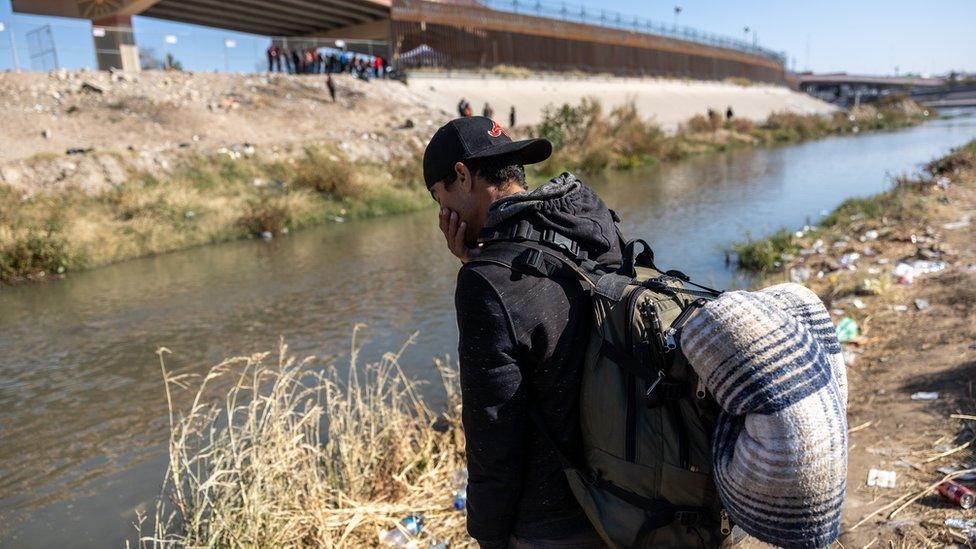US border crisis: El Paso readies for rise in crossings as end of Title 42 looms
- Published
Watch: What is the Title 42 border policy?
A record number of migrants were recently apprehended at the US-Mexico border in a single day, fuelling fears over what will happen in a few hours when a controversial immigration policy expires.
The rule, known as Title 42, was first implemented in 2020 and made it easier for the US to expel migrants back to Mexico using the coronavirus pandemic as justification.
But its looming expiration at 23:59 ET on Thursday (03:59 GMT on Friday) has triggered a rush to reach the border, and cities on both sides are readying for a rise in attempted crossings once it lapses.
President Joe Biden acknowledged earlier this week that the border would be "chaotic for a while" despite the best efforts of the authorities.
The potential impact is already clear in the Texas city of El Paso, which is seeing an increase in arrivals ahead of the rule change.
Migrants - many of them confused about the impending change - are sleeping rough in makeshift campsites on the city's streets. Several thousand were camped out earlier this week around a church in the city centre.
"We've never seen this before," Mayor Oscar Leeser said at a border security expo just streets away from the campsite on Wednesday. "Something has to change. As a community, we can't do this forever."
He warned that across from El Paso alone, an estimated 10,000 migrants were "lined up at the border, waiting to come in".
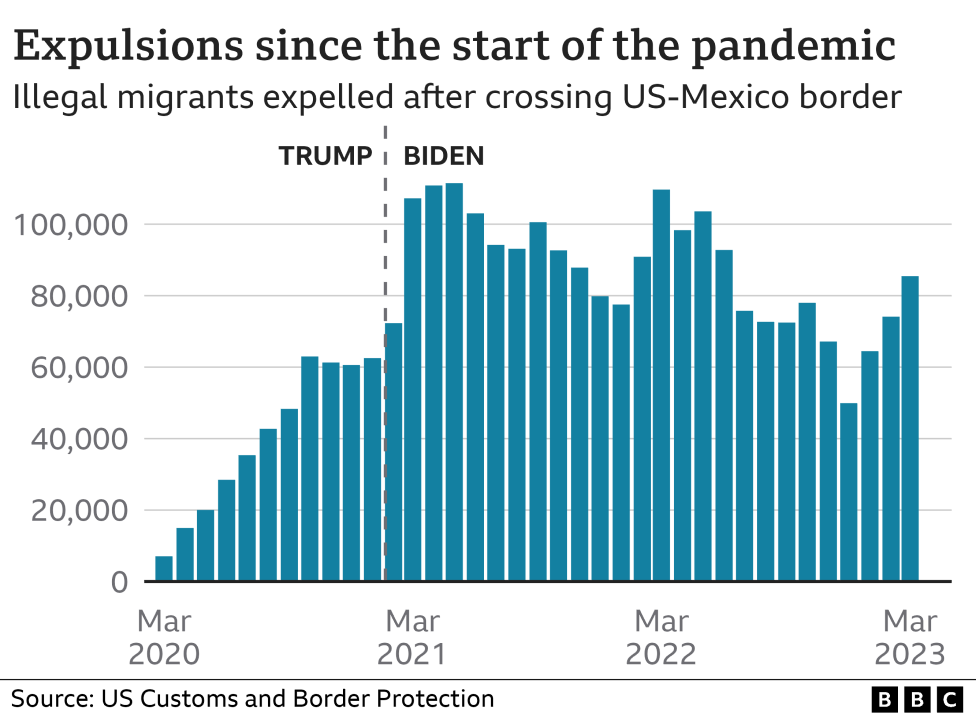
Joe Sanchez, the regional director of the Texas Department of Public Safety, compared the situation to a stampede at a football game - only many times larger.
"Imagine 60,000 people in one location, and all of a sudden an alert comes on and says there's a bomb in the building. What happens after that? Chaos… It's very hard to control and very hard to manage," he told the BBC.
"That's exactly what it's like on the border."
For those migrants - and those already in the US - the future is uncertain.
In a bid to stop the flow, the Biden administration introduced strict new rules for asylum seekers on Wednesday, which included barring those who cross illegally from applying from asylum for five years.
US officials have also announced new changes aimed at encouraging migrants to seek legal pathways to the country, as well as strict penalties and swift deportation for those who do not.
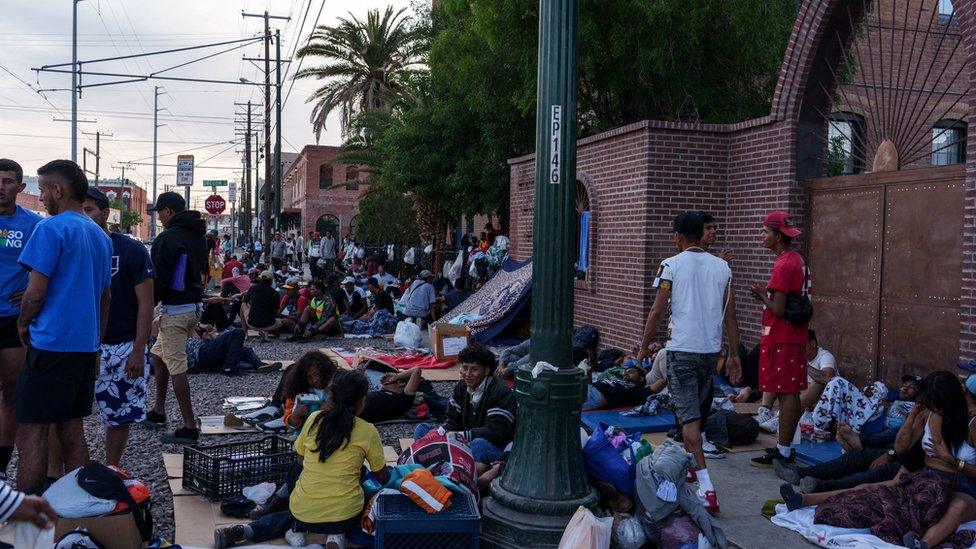
Migrants are camped out at a church in El Paso ahead of Title 42 ending
Moreover, about 24,000 law enforcement officers have been stationed along the length of the 2,000 mile (3,218km) border, along with thousands of National Guard troops and active-duty military personnel sent to help Customs and Border Protection (CBP).
The new measures come at a challenging time for the CBP. In the El Paso sector alone, officers have seen a sharp rise in attempted crossings over the past six months and are carrying out hundreds of detentions every day.
Authorities in the city have been left to contend both with unprocessed migrants who crossed illegally, and those who have been released from detention to await a court date with an immigration judge. Some migrants in El Paso told the BBC they would have to wait years before they appear in court.
And just days before Title 42 expires, officials here have launched an enforcement operation asking migrants to head to the nearest processing facility.
Those who were found to have legitimate asylum claims were given dates to appear before an immigration judge, while others were detained for eventual removal. One woman told the BBC that her court date was in 2025 in Miami, Florida.
Migrants in the area also said that some had run, fearful of deportation, while others had reluctantly presented themselves to CBP officers in the hopes that they would be allowed to stay.
"It was crazy. They came to tell us early in the morning, when it was still dark," said Luis Angel, a 29-year-old Cuban who was paroled into El Paso awaiting his court date. "Some of my friends are still detained."
Speaking on Wednesday, Homeland Security Secretary Alejandro Mayorkas said that much of the problem stemmed from smugglers who had "been hard at work spreading false information that the border will be open" after 11 May.
"It will not be. They are lying," he added. "We urge migrants once again not to believe the smugglers who are lying to them solely to make a profit. We are building lawful pathways for you to come to the United States."
Among the steps being taken are the opening of regional processing centres aimed at helping migrants apply to come to the US, as well as expanded access to CBP One, an app which migrants can use to schedule asylum appointments.
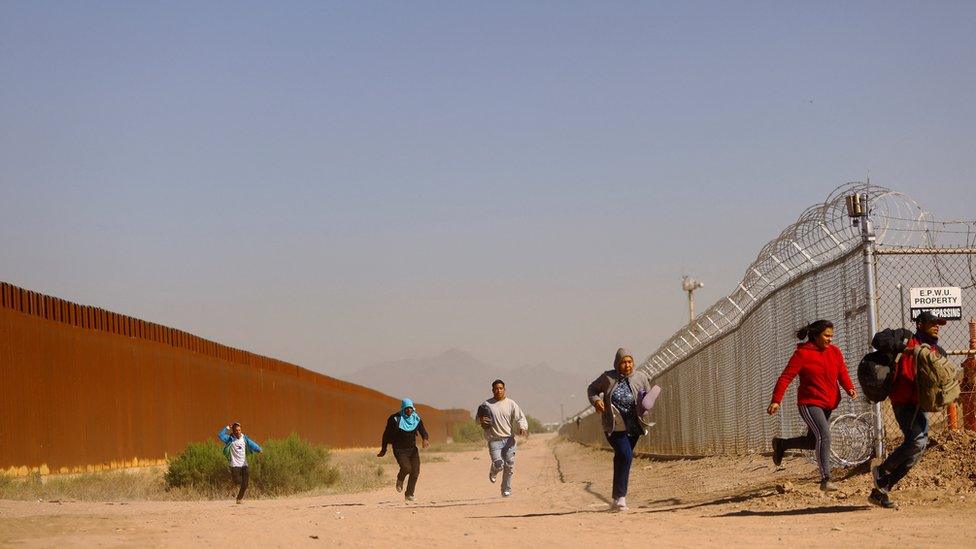
Migrants run from Border Patrol after crossing into El Paso, Texas
CBP also plans to ramp up efforts to counter misinformation to combat rumours about border policies.
Still, many migrants in El Paso said that they found the rules confusing and had heard conflicting information about what might happen before or after the policy ends.
"The rules definitely influenced me. I heard that with Title 42 they'd return me to Mexico to try again until I get in," said Daniel, a Venezuelan.
"But now they'll return everyone to their country," he said. "If I go back to Venezuela, who knows, they might torture or imprison me. That's how it is there."
With additional reporting from Angelica Casas and Morgan Gisholt Minard
- Published12 May 2023
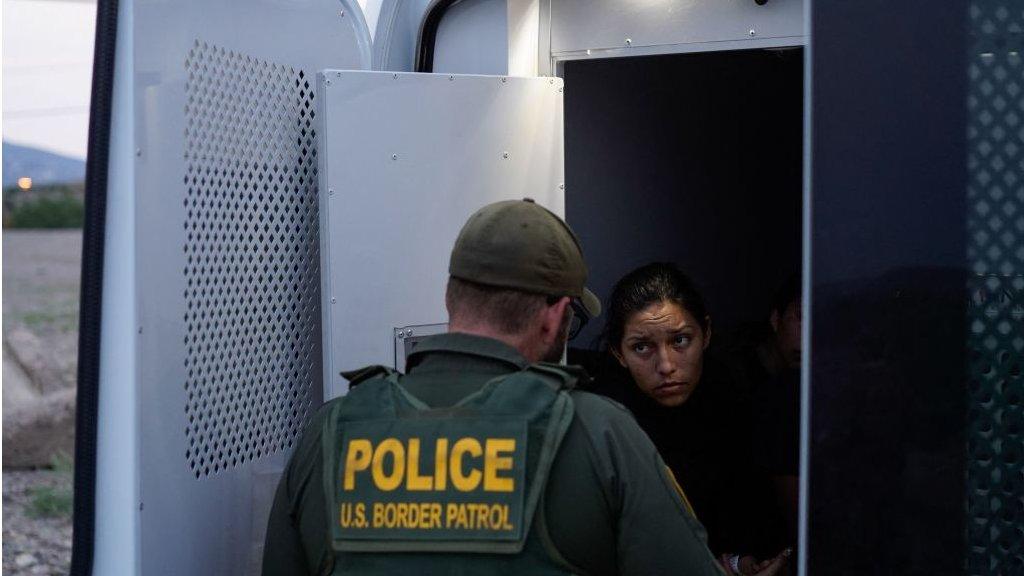
- Published2 May 2023
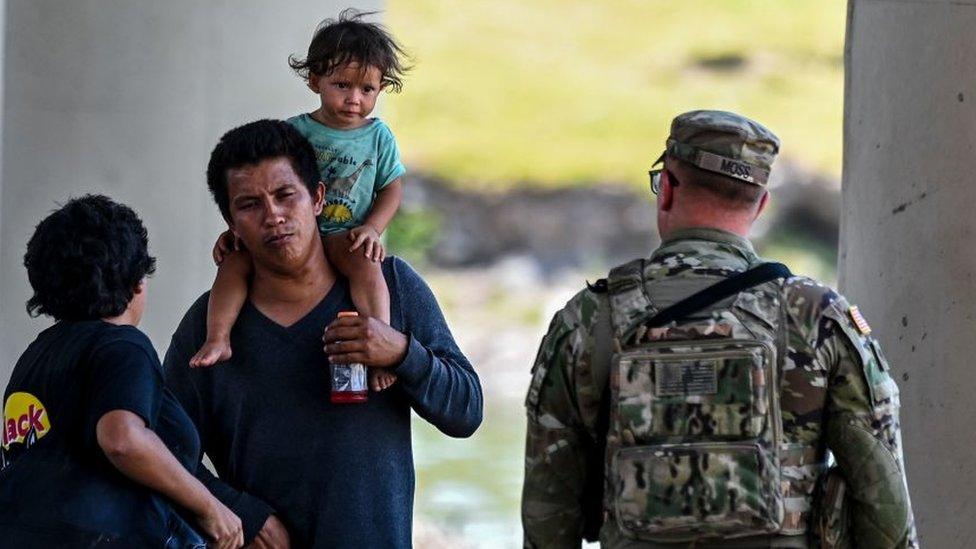
- Published28 April 2023
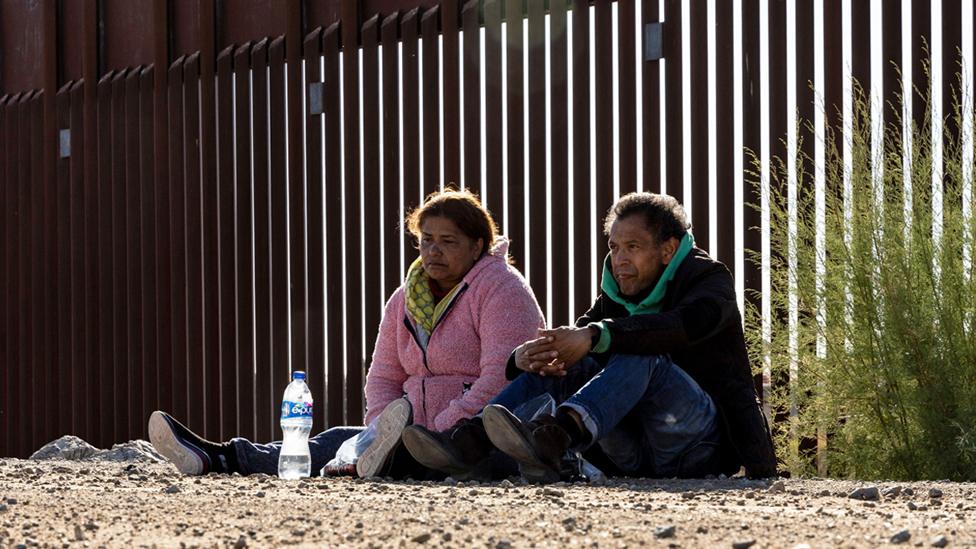
- Published9 May 2023
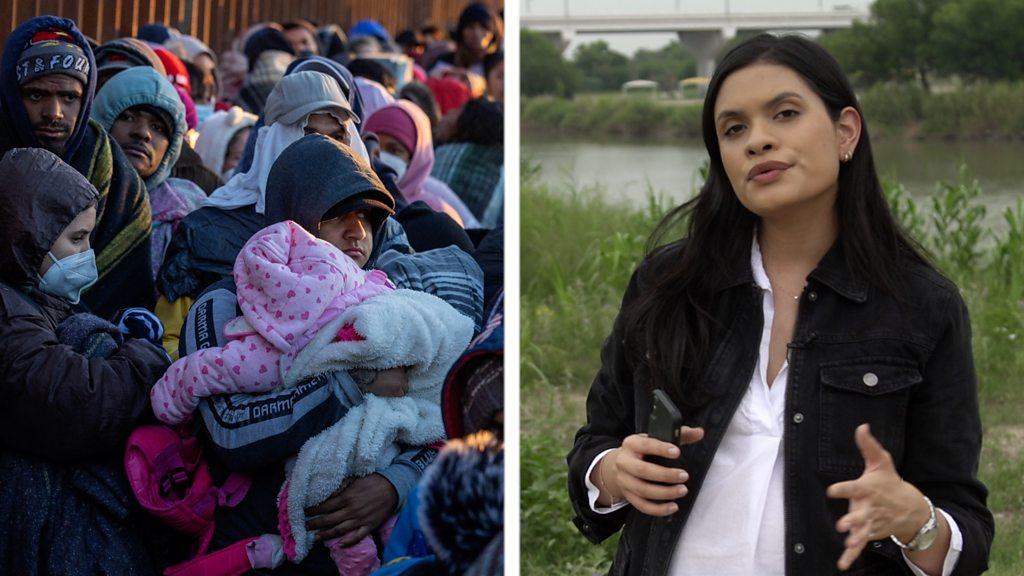
- Published20 December 2022
